
Teamwork is a hard thing to pull off in a competitive military FPS. In Battlefield, a friend with an ammo bag or medic kit is nice to have around, but ultimately unnecessary when lives are brief and you can simply start fresh with a respawn. In Rainbow Six Siege, teamwork means providing intel with surveillance cameras or synergising your gadget with another. In Call of Duty, it means… well, not a whole lot. This is by design – coordination in shooters ranges from a nice bonus in a game ultimately decided by individual skill, to a compelling but highly gamified act that lays out clear combos between player abilities.
That is not how Squad, a tactical FPS soon leaving Early Access after years on Steam, sees teamwork. Squad is about being a cog in a grand machine. Matches are long, two-hour struggles over territory where you don’t know if you’re winning until it’s over. Teams are spread across the kilometres-wide map working towards different goals. Maps are so big, in fact, that it’s common to chat with someone at the main base in the staging phase and then not see them again for the rest of the match.
Squad’s sheer scale is a crucial factor in what makes organisation and coordination paramount. You can’t just respawn on a squadmate or at a captured objective. Squad leaders have to construct FOBs (forward operating bases) for the team to use.
Because efficient redeployment is so powerful, strategic FOB placement is hugely important. They need to be close to the action, but difficult to access for enemies.
BULLET DROP
Denne historien er fra Christmas 2019-utgaven av PC Gamer.
Start din 7-dagers gratis prøveperiode på Magzter GOLD for å få tilgang til tusenvis av utvalgte premiumhistorier og 9000+ magasiner og aviser.
Allerede abonnent ? Logg på
Denne historien er fra Christmas 2019-utgaven av PC Gamer.
Start din 7-dagers gratis prøveperiode på Magzter GOLD for å få tilgang til tusenvis av utvalgte premiumhistorier og 9000+ magasiner og aviser.
Allerede abonnent? Logg på

A New Dawn - The rise, fall and rise again of PC Gaming in Japan
The so-called 'Paso Kon' market (ie katakana's transliteration of 'Pasonaru Computa') in Japan was originally spearheaded in the 1980s by NEC's PC-8800 and, later, its PC-9800.
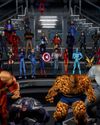
MARVEL: ULTIMATE ALLIANCE
Enter the multiverse of modness.

SLIDES RULE
Redeeming a hated puzzle mechanic with SLIDER
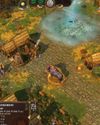
GODS AND MONSTERS
AGE OF MYTHOLOGY: RETOLD modernises a classic RTS with care

PHANTOM BLADE ZERO
Less Sekiro, more Wo Long: Fallen Dynasty

STARR-MAKING ROLE
Final Fantasy XVI's BEN STARR talks becoming a meme and dating summons
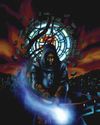
THIEF GOLD
Learning to forgive myself for knocking out every single guard.

HANDHELD GAMING PCs
In lieu of more powerful processors, handhelds are getting weirder
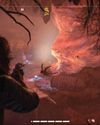
FAR FAR AWAY
STAR WARS OUTLAWS succeeds at the little things, but not much else shines
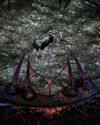
FINDING IMMORTALITY
Twenty-five years on, PLANESCAPE: TORMENT is still one of the most talked-about RPGs of all time. This is the story of how it was created as a ‘stay-busy’ project by a small team at Black Isle Studios